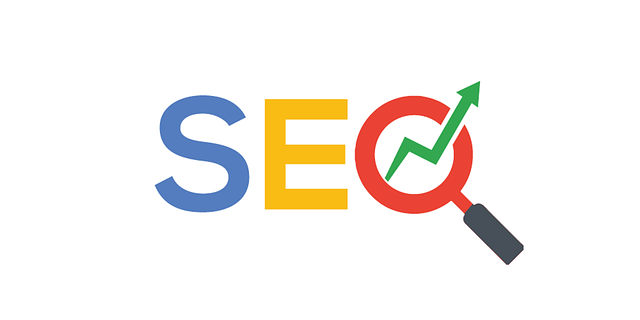Full-stack digital marketing integrates SEO, content creation, social media, email marketing, and data analytics to drive online growth. It synergizes an organization's entire digital presence for optimized performance by leveraging strategic keyword research, high-quality content, and technical optimization. This approach uses a variety of KPIs across all platforms to measure success, including keyword rankings, organic traffic volume, bounce rates, click-through rates, conversion rates, customer acquisition cost (CAC), and return on investment (ROI). By incorporating CRM data, agencies can tailor marketing strategies to consumer behavior, enhance SEO relevance, and improve conversion rates. The comprehensive evaluation of campaigns through these KPIs allows for real-time strategy adjustments and ensures a strong ROI by addressing audience needs effectively. This integrated full-stack digital marketing strategy is exemplified by a case where a B2B software company's online presence was significantly improved through targeted SEO enhancements, content optimization, and paid campaign strategies, resulting in increased lead generation and business growth. Full-stack digital marketing, SEO, CRM integration, KPIs, and data-driven insights are all critical components of a successful, sustainable online marketing strategy.
In today’s interconnected world, full stack digital marketing agencies are pivotal in navigating the multifaceted digital landscape. Mastery of this discipline requires a nuanced approach that integrates various marketing channels and techniques to achieve comprehensive campaign objectives. This article delves into the strategies employed by these agencies to accurately measure the success of their campaigns. We will explore the essential role of SEO, the utilization of advanced analytics and data, the insights gleaned from CRM systems, and the real-world applications through case studies that exemplify best practices in full stack digital marketing. Join us as we unravel the methods behind these agencies’ success in crafting campaigns that resonate with target audiences and deliver tangible results.
- Understanding Full-Stack Digital Marketing: A Comprehensive Overview
- Key Performance Indicators (KPIs) in Full-Stack Digital Marketing Campaigns
- The Role of SEO in Measuring Full-Stack Marketing Success
- Utilizing Analytics and Data to Track Campaign Performance
- Integrating CRM Insights for Enhanced Campaign Evaluation
- Case Studies: Real-World Examples of Full-Stack Digital Marketing Success Metrics
Understanding Full-Stack Digital Marketing: A Comprehensive Overview

Full-stack digital marketing encompasses a wide array of strategies and disciplines that work in concert to drive online growth. At its core, full-stack digital marketing integrates various channels such as search engine optimization (SEO), content creation, social media management, email marketing, and data analytics. This holistic approach ensures that all facets of an organization’s digital presence are optimized for maximum impact. Agencies specializing in full-stack digital marketing employ a strategic mindset, aligning each campaign with the overarching business goals to create a cohesive narrative across all platforms.
SEO plays a pivotal role within this framework. It involves optimizing website content and structure to improve visibility on search engines like Google. By understanding and implementing best practices for SEO, full-stack digital marketing agencies can enhance a brand’s online presence, ensuring that potential customers can easily find the company’s offerings amidst a crowded digital landscape. Meticulous keyword research, high-quality content creation, and technical website optimization are all critical components of an effective SEO strategy, which in turn contributes to the overall success of a marketing campaign.
Key Performance Indicators (KPIs) in Full-Stack Digital Marketing Campaigns

In the realm of full-stack digital marketing, the efficacy of campaigns is gauged through a comprehensive set of Key Performance Indicators (KPIs). These metrics serve as the linchpin for understanding campaign performance and are integral to the optimization process. For instance, SEO KPIs are pivotal in evaluating how well a website ranks on search engines and include factors such as keyword rankings, organic traffic volume, bounce rates, and click-through rates (CTR) from search engine results pages. These SEO metrics provide insights into user engagement and content relevance, which are critical for sustained visibility and authority within search engine ecosystems.
Beyond SEO, full-stack digital marketing agencies also consider a variety of other KPIs that encompass the entire customer journey. Conversion rates across different channels like email marketing, social media platforms, and paid advertising campaigns are scrutinized to determine the effectiveness of lead generation efforts. Additionally, agencies track engagement metrics such as likes, shares, comments, and retweets on social media, along with open rates and conversion rates for emails. Metrics related to customer acquisition cost (CAC) and return on investment (ROI) are also pivotal in assessing the financial viability of campaigns. By leveraging a balanced scorecard of KPIs that span across SEO, content marketing, social media engagement, and analytics, full-stack digital marketing agencies can deliver data-driven insights and actionable recommendations to optimize campaign performance and drive business growth.
The Role of SEO in Measuring Full-Stack Marketing Success

In the realm of full-stack digital marketing, Search Engine Optimization (SEO) plays a pivotal role in gauging the success of campaigns. SEO efforts are integral to enhancing a brand’s online visibility and ensuring that it ranks high on search engine results pages (SERPs). Agencies leverage a suite of SEO tools and metrics to track performance indicators such as keyword rankings, organic traffic, click-through rates (CTR), and bounce rates. These insights enable agencies to fine-tune their content strategies, improve user experience, and align with search engine algorithms. By integrating SEO analytics into the campaign measurement framework, full-stack digital marketing agencies can effectively assess how well their campaigns are resonating with target audiences and adjust tactics accordingly to drive sustained growth in organic reach and engagement.
Furthermore, successful full-stack digital marketing extends beyond mere content creation; it encompasses a comprehensive approach that includes technical SEO, content optimization, and link-building strategies. Agencies analyze the effectiveness of these components by monitoring search engine indexation status, evaluating the authority and relevance of inbound links, and ensuring that content is optimized for both search engines and human readers. By adopting a data-driven approach that emphasizes SEO performance metrics, full-stack digital marketing agencies can deliver measurable outcomes and demonstrate their value in driving traffic, generating leads, and ultimately contributing to the conversion objectives of their clients.
Utilizing Analytics and Data to Track Campaign Performance

Full-stack digital marketing agencies employ a comprehensive approach to tracking campaign performance, leveraging advanced analytics and data to gauge success. By integrating SEO strategies with robust analytics tools, these agencies can monitor various key performance indicators (KPIs) that align with the campaign’s objectives. They analyze user engagement across multiple channels, including social media platforms, email marketing campaigns, and website traffic. This data-driven method ensures that agencies can identify patterns and trends, optimizing their strategies in real-time to enhance campaign effectiveness.
In the realm of digital marketing, the role of analytics and data cannot be overstated. Full-stack agencies utilize a suite of tools to capture and interpret data at every touchpoint. By doing so, they gain insights into customer behavior, campaign reach, and conversion rates. This allows for a nuanced understanding of what is resonating with the target audience and what needs refinement. The integration of SEO best practices further enriches the dataset, providing a clear view of how organic search contributes to the overall performance of marketing campaigns. With this information, agencies can make informed decisions to improve campaign outcomes, ensuring that their clients receive maximum ROI from their digital marketing efforts.
Integrating CRM Insights for Enhanced Campaign Evaluation

In the realm of full-stack digital marketing, integrating Customer Relationship Management (CRM) insights is pivotal for a nuanced evaluation of campaign success. By leveraging CRM data, agencies can align marketing strategies with customer behavior and preferences, thereby crafting more targeted and effective campaigns. This integration allows for real-time analysis of consumer interactions, which in turn informs SEO strategies and content personalization. Agencies can track conversion paths across various touchpoints, from social media engagement to email open rates, providing a comprehensive view of the customer journey. This data-driven approach enables full-stack marketing teams to refine their tactics, optimize ad spend, and enhance the overall ROI of their campaigns by addressing the specific needs and interests of their audience.
Furthermore, CRM insights contribute significantly to the segmentation and targeting capabilities within SEO strategies. By understanding customer demographics, behavior patterns, and preferences, agencies can tailor keywords and content to resonate with different segments. This targeted approach not only improves the relevance of search engine results but also increases the likelihood of conversion. The integration of CRM insights with full-stack digital marketing efforts ensures that campaigns are not only reaching the intended audience but also engaging them in a meaningful way, ultimately leading to measurable success and a stronger online presence for clients.
Case Studies: Real-World Examples of Full-Stack Digital Marketing Success Metrics

Full-stack digital marketing agencies leverage a comprehensive array of strategies and tools to measure campaign success effectively. By integrating search engine optimization (SEO) with other marketing channels, they can track both quantitative and qualitative data to assess performance. For instance, a full-stack agency might analyze the increase in organic traffic as a direct result of SEO efforts alongside conversions from paid advertising campaigns. This holistic approach allows for a nuanced understanding of how different tactics contribute to overall campaign objectives.
Real-world case studies provide tangible evidence of this integrated strategy in action. One such example is a B2B software company that partnered with a full-stack digital marketing agency to revitalize their online presence. The agency conducted a thorough audit of the company’s existing SEO and digital campaigns, identifying gaps and opportunities. By optimizing the website for relevant keywords, improving content quality, and complementing these efforts with targeted paid advertising, the agency significantly increased the client’s lead generation. Metrics such as click-through rates (CTR), conversion rates, and return on ad spend (ROAS) were closely monitored to ensure that each campaign was not only reaching the intended audience but also driving measurable business outcomes. This case illustrates the effectiveness of a full-stack approach to digital marketing, where SEO acts as a foundation for a successful multi-channel strategy.
In wrapping up our exploration of how full-stack digital marketing agencies measure campaign success, it’s clear that a multi-faceted approach is paramount. Agencies adept in this field leverage a variety of tools and strategies, from key performance indicators (KPIs) to sophisticated analytics, integrating customer relationship management (CRM) insights to refine their campaigns. SEO remains a cornerstone of success measurement due to its direct impact on online visibility and user engagement. By analyzing data across all marketing channels, agencies can not only track campaign performance but also adapt strategies in real-time for optimal results. The case studies presented underscore the effectiveness of this comprehensive methodology, demonstrating how full-stack digital marketing can lead to measurable success and drive business growth.
